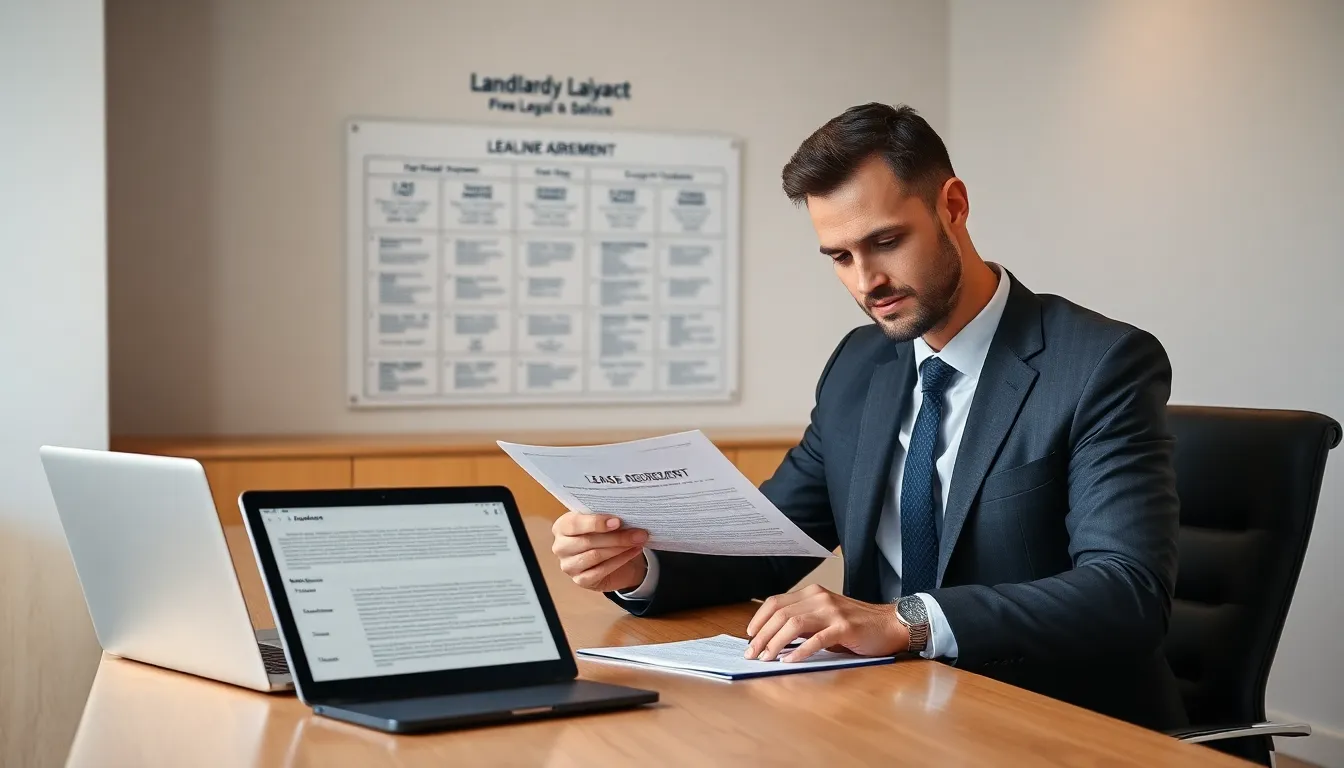Navigating the wild world of landlord-tenant law can feel like trying to find your way out of a corn maze blindfolded. One wrong turn, and you could end up in a legal nightmare instead of collecting rent. Thankfully, landlords don’t have to go it alone. Getting free legal advice can not only save you time and money, but it could also keep your rental properties out of hot water. Here’s the scoop on how to leverage free legal resources and keep your sanity intact while ensuring you’re on the right side of the law.
Table of Contents
ToggleUnderstanding Tenant-Landlord Law

Understanding tenant-landlord law is crucial for successful property management. It’s about more than just collecting rent: it entails knowing rights and responsibilities on both sides of the lease agreement. Laws vary widely by state, often resulting in a complex landscape that landlords must navigate.
In general, tenant-landlord laws cover a broad array of topics including the leasing process, maintenance obligations, security deposits, and eviction procedures. Familiarity with these laws equips landlords with the necessary tools to manage properties effectively while minimizing disputes with tenants. Essentially, knowledge is power in this scenario, allowing landlords to maintain strong, lawful relationships with their tenants.
Unexpected issues often arise, like a tenant breaking a lease or refusing to vacate the property. Understanding the law empowers landlords to take appropriate action without falling into common legal traps. Ignoring local laws could lead to hefty fines or costly litigation, making it vital for landlords to stay informed.
Benefits of Seeking Legal Advice for Landlords
Seeking legal advice offers a myriad of advantages for landlords eager to protect their investments. First and foremost, professional insight can lead to better decision-making. A qualified attorney provides clarity on complex scenarios that could leave even the most seasoned landlord scratching their head.
Besides, legal advice can help landlords identify potential liabilities before they escalate into major issues. Understanding the intricacies of local laws not only keeps properties compliant but may also provide an edge when navigating disputes with tenants. For instance, knowing the correct procedures for handling a late rent payment can save landlords both time and stress.
It’s also worth noting that securing legal counsel can enhance the overall tenant experience. When landlords are well-informed, they can create fair lease agreements and maintain open communication channels. Happy tenants often lead to longer tenancies, which translates into sustainable rental income.
Where to Find Free Landlord Legal Advice
Finding free landlord legal advice doesn’t have to be a scavenger hunt. Several resources provide reliable information and guidance without very costly. Here are some valuable options to explore:
Common Legal Issues Faced by Landlords
Landlords frequently confront common legal issues such as security deposit disputes, lease violations, and eviction processes. Understanding these issues allows landlords to seek appropriate legal advice early on. Many community organizations and legal aid societies offer educational workshops and literature on these topics, empowering landlords with practical knowledge.
Navigating Lease Agreements and Contracts
Lease agreements form the backbone of the tenant-landlord relationship. They’re not just fancy paperwork: they’re legally binding contracts that outline rights and responsibilities. Seeking legal advice can help landlords draft clear, comprehensive leases that protect their interests while remaining fair to tenants. Many free legal clinics also provide resources for creating effective lease agreements.
Handling Evictions Legally and Ethically
Evictions are often the most contentious area of landlord-tenant law. Failing to follow proper procedures can lead to significant legal ramifications. Landlords seeking free legal advice can tap into resources that clarify eviction protocols and ensure they comply with local laws. Many local bar associations provide guidance on the eviction process, offering crucial information that can prevent costly missteps.
Resources for Additional Support and Guidance
Plus to free legal advice, landlords can benefit from various resources to support their property management efforts.
Local Bar Associations often host free legal clinics where landlords can ask questions and receive guidance specific to their location. These clinics are a goldmine for anyone navigating complex legal waters.
Nonprofit Organizations focused on housing rights also provide valuable resources. Many of them offer workshops, literature, and sometimes even personalized advice tailored for landlords.
Online platforms like the American Landlord Association and similar websites can be excellent sources of information. They often feature articles, forums, and webinars led by experienced professionals discussing relevant topics and current trends in landlord-tenant law.



